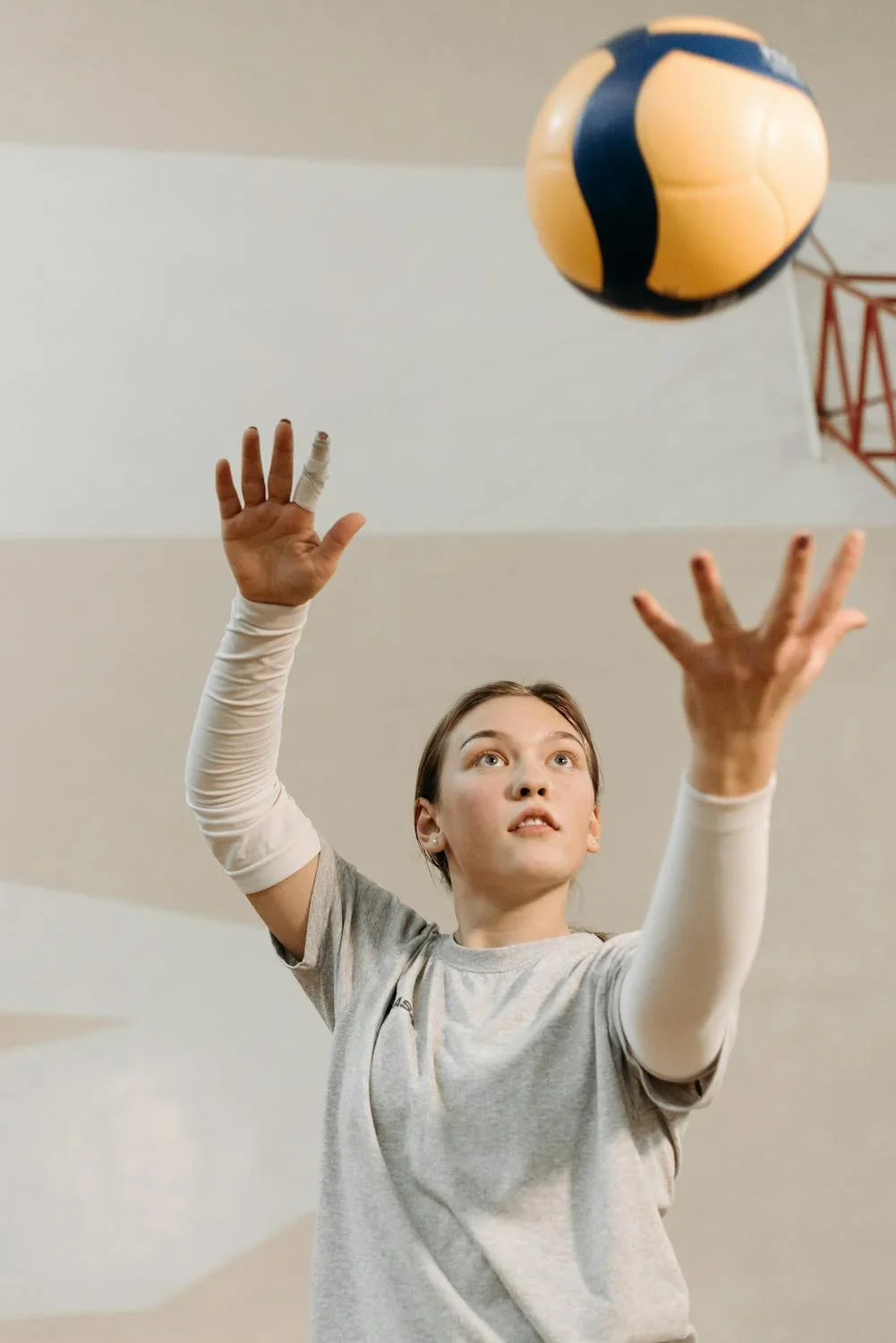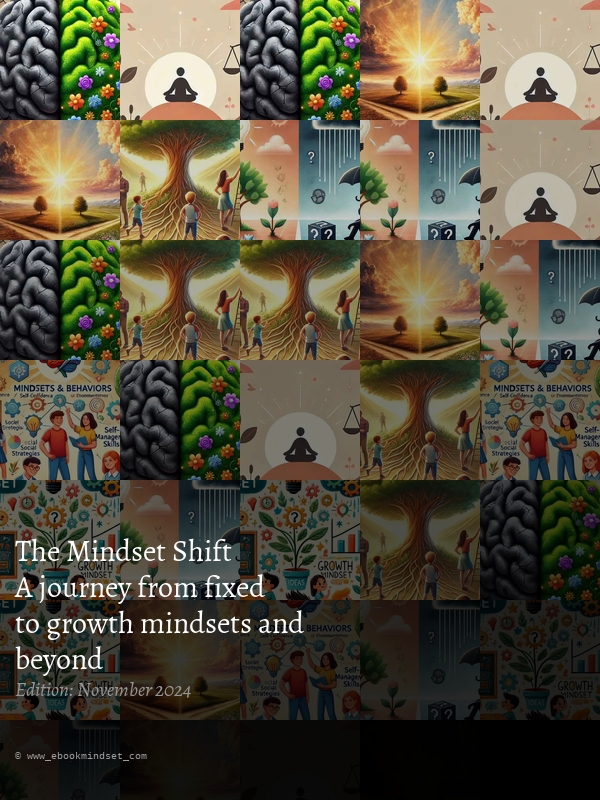Understanding the Importance of Mindset in Volleyball
Volleyball is not merely a physical exertion; it's a deeply mental game that demands a robust and resilient mindset. The right mindset significantly impacts an athlete's performance, their ability to function effectively within a team, and ultimately, their enjoyment of the sport. This comprehensive article delves into the intricacies of mindset in volleyball, exploring its paramount importance, effective cultivation techniques, and practical strategies applicable to players of all skill levels. We will unpack the distinctions between fixed and growth mindsets, examine their influence on various aspects of gameplay, and provide actionable steps to foster a winning mentality on and off the court.
What is Mindset?
Mindset refers to the deeply ingrained beliefs and attitudes that shape how individuals perceive their abilities and approach challenges. These internal frameworks profoundly influence their actions, reactions, and overall performance. In the context of volleyball, the concept of mindset is often categorized into two distinct types: fixed and growth mindsets. Understanding these contrasting approaches is crucial to unlocking peak performance and fostering a lifelong love for the game.
Fixed Mindset vs. Growth Mindset
Fixed Mindset
Athletes with a fixed mindset harbor the belief that their abilities are inherently static and unchangeable. They view their talents as innate and immutable, leading to a fear of challenges and a tendency to avoid situations that might expose their perceived limitations. A fixed mindset often manifests as an aversion to risks, a fear of failure, and a tendency to give up easily when faced with setbacks. This rigid approach ultimately restricts personal growth and limits the athlete's full potential. They might focus on proving their ability rather than improving it, leading to stagnation and a lack of continuous development.
Growth Mindset
In stark contrast, athletes with a growth mindset embrace challenges as invaluable learning opportunities. They believe that their abilities are not fixed but rather malleable and capable of significant improvement through dedicated effort and perseverance. This perspective fosters resilience, a love for the learning process, and a relentless pursuit of self-improvement. According to renowned psychologist Carol Dweck, cultivating a growth mindset is paramount for achieving one's full potential in any field, and volleyball is no exception. These athletes view setbacks as stepping stones, learning from mistakes and using them as fuel for further development. They are not afraid to fail, understanding that failure is an integral part of the learning process.
The Role of Mindset in Volleyball Performance
A player's mindset plays a pivotal role in several key areas of volleyball performance. A strong, positive mindset isn't just a desirable trait; it's a critical component for success at all levels of the game.
1. Mental Toughness
Mental toughness is the ability to maintain unwavering focus, unshakeable confidence, and exceptional composure even under intense pressure. It's the ability to stay calm and collected when the stakes are high and the pressure is on. Developing mental toughness requires consistent practice and strategic mental preparation, including techniques like visualization, positive self-talk, and mindfulness exercises. These tools empower players to perform at their best regardless of external factors.
2. Resilience
Resilience is the ability to bounce back from setbacks and failures. It's the capacity to recover quickly from adversity and to view setbacks not as insurmountable obstacles but as valuable learning experiences. Resilient players don't dwell on their mistakes; instead, they analyze them, learn from them, and use them as motivation to improve their performance. This adaptability is crucial in volleyball, where matches can be filled with unexpected turns and challenging moments.
3. Focus and Concentration
A strong mindset directly enhances the ability to focus and concentrate. A "one-point-at-a-time" mentality, often cultivated through mindful practices, prevents players from dwelling on past mistakes or becoming anxious about future uncertainties. This laser-like focus allows for improved decision-making on the court and contributes to consistent and high-quality play.
4. Team Dynamics
Volleyball is inherently a team sport, requiring seamless collaboration and mutual support. A positive and collaborative mindset fosters strong team dynamics, encouraging supportive interactions and a shared commitment to collective goals. Teams with a shared growth mindset—where players believe in each other's ability to grow and improve—tend to exhibit better teamwork, communication, and overall performance compared to those with a more individualistic or fixed mindset.
Cultivating the Right Mindset
Developing the right mindset in volleyball requires a conscious and consistent effort, much like physical training. It involves incorporating specific practices into one's daily routine to foster a growth-oriented perspective.
1. Set Clear Goals
Establishing specific, measurable, achievable, relevant, and time-bound (SMART) goals provides a clear roadmap for progress and maintains motivation. Tracking progress, celebrating milestones, and acknowledging even small victories reinforce a growth mindset and encourage continued effort. These goals should encompass both on-court performance and personal development, encompassing areas such as improved technique, stronger mental resilience, or enhanced teamwork skills.
2. Practice Visualization
Visualization, a powerful mental training technique, involves mentally rehearsing successful plays and scenarios. Regularly visualizing successful performances enhances confidence, reduces pre-game anxiety, and improves performance under pressure. This practice allows athletes to mentally prepare for challenging situations and strengthens their mental fortitude, helping them anticipate and react effectively during actual gameplay.
3. Develop Positive Self-Talk
Positive self-talk is a crucial tool for combating negative thoughts and self-doubt. Replacing negative self-criticism with encouraging affirmations like "I can do this," "I'm getting better," or "I'll learn from this mistake" significantly boosts confidence and motivation. Consciously replacing negative thoughts with positive ones becomes a habit that ultimately shapes the player's overall attitude and approach to the game.
4. Embrace Challenges
View challenges as growth opportunities, not as threats. Actively seeking out challenging situations, such as playing against stronger opponents or attempting more difficult skills, accelerates skill development and builds resilience. These challenges push players beyond their comfort zones, encouraging adaptation and ultimately leading to improved performance.
5. Learn from Mistakes
Instead of viewing mistakes as failures, analyze them objectively to identify areas for improvement. This approach encourages continuous learning and fosters a healthy relationship with failure, recognizing it as a valuable stepping stone on the path to success. The ability to learn from mistakes is paramount to sustained growth and development in the sport.
Strategies for Improving Mental Toughness
Developing and maintaining mental toughness is an ongoing process requiring consistent effort and dedication.
1. Mindfulness Techniques
Mindfulness techniques, such as deep breathing exercises and meditation, are effective tools for managing stress and enhancing focus. These practices promote a state of mental clarity and calmness, allowing players to concentrate on the present moment and perform optimally under pressure. Regular mindfulness practice builds mental resilience and increases the ability to remain focused and calm amidst the pressures of competition.
2. Routine Development
Establishing consistent pre-game routines creates a sense of familiarity and comfort, reducing anxiety and improving performance consistency. These routines might include specific warm-up exercises, visualization practices, or personal rituals that help to calm the nerves and center the mind before a match. The consistency and predictability provided by a routine enhance mental preparedness and contribute to optimal performance.
3. Performance Cues
Using performance cues—short, focused phrases—can help maintain focus during matches. These cues, such as "stay low," "watch the ball," or "swing hard," serve as mental anchors, helping to maintain concentration and execute skills effectively under pressure. Effective performance cues are concise, action-oriented, and easily recalled during the heat of competition.
4. Regular Mental Training
Similar to physical training, mental skills require regular practice and refinement. Simulating high-pressure scenarios during training sessions prepares players for real-game situations and builds mental resilience. This preparation helps players develop coping mechanisms for dealing with stress and pressure, improving their overall mental toughness and performance consistency.
The Impact of Coaching on Mindset Development
Coaches play a crucial role in shaping the mindsets of their athletes through their coaching style and the feedback they provide.
1. Positive Reinforcement
Coaches should consistently emphasize positive reinforcement, acknowledging effort and celebrating improvements, fostering a growth mindset in their players. This approach creates a supportive and encouraging environment where players feel comfortable taking risks and learning from mistakes without fear of judgment or criticism. Positive reinforcement builds confidence and motivates players to push their boundaries.
2. Encouraging Team Communication
Promoting open and honest communication within the team builds trust and strengthens camaraderie. This fosters a collaborative environment where players feel comfortable sharing ideas, offering support, and working together towards common goals. Effective communication is essential for building strong team dynamics and achieving collective success.
3. Modeling Resilience
Coaches should model resilience themselves, demonstrating to their players that failure is an inevitable part of the journey to success. By openly discussing setbacks and illustrating how they've overcome challenges, coaches teach players valuable lessons about perseverance and the importance of learning from adversity. This modeling empowers players to embrace challenges and to view failures as opportunities for growth.
Conclusion
The mindset of a volleyball player significantly influences their performance, their ability to work effectively within a team, and their overall enjoyment of the sport. Cultivating a growth mindset unlocks the athlete's full potential, allowing them to reach new heights of performance and personal development. Prioritizing the mental game—through techniques such as visualization, positive self-talk, mindfulness, and goal setting—leads to greater achievements on the court and a more fulfilling athletic experience. Integrating these strategies into daily routines, coupled with fostering supportive team environments, enhances the overall experience of this dynamic and demanding sport. This underscores the critical interplay between psychological factors and physical performance, providing valuable insights for volleyball players and coaches at all levels of competition.




